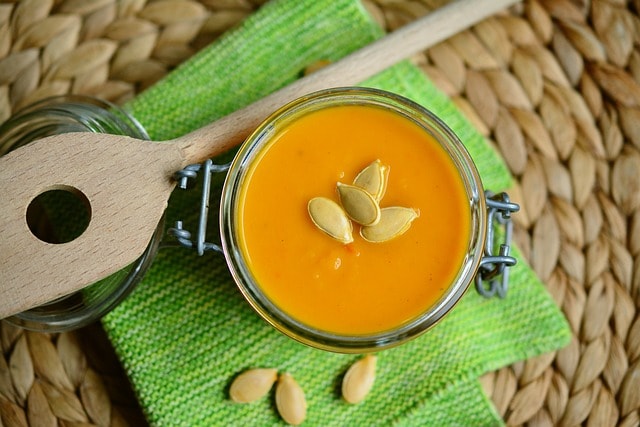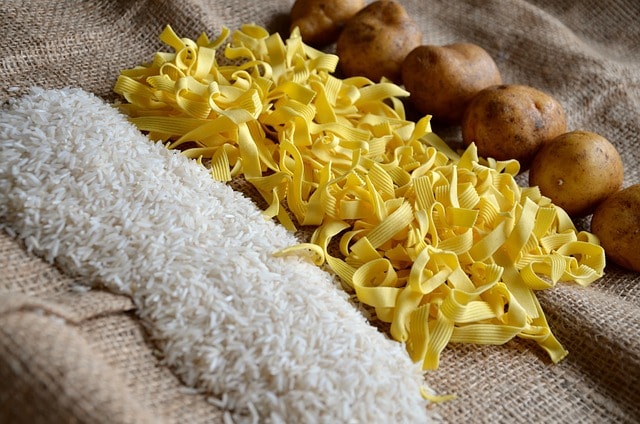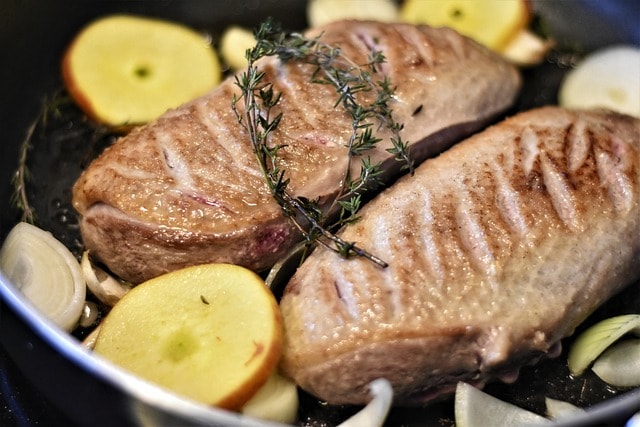
As the colder months set in and the days get shorter, many people experience a drop in energy levels and motivation. The winter blues can affect anyone, causing feelings of fatigue, irritability, and even a decline in overall well-being. But did you know that nutrition plays a significant role in combatting these seasonal mood shifts?
Daron Hutt, a UK-based fitness expert and nutrition coach, believes that proper nutrition is key to lifting your spirits and maintaining optimal energy during the winter months. By adjusting your diet to focus on the right foods and nutrients, you can not only boost your mood but also improve your overall physical and mental health.
In this article, we will explore the connection between nutrition and mental health, as well as Daron Hutt’s tips on how to adjust your eating habits to fight the winter blues.

Understanding the Winter Blues and Nutrition’s Role
The winter blues, also known as Seasonal Affective Disorder (SAD), are commonly linked to the lack of sunlight, colder temperatures, and changes in daily routines. As the weather gets colder and daylight hours become shorter, our bodies often struggle to maintain energy and focus. This seasonal shift can lead to fatigue, poor sleep quality, and even mood swings.
While the winter blues can affect anyone to some extent, people who are prone to low serotonin or vitamin D deficiencies may experience more intense symptoms. However, nutrition has been shown to significantly influence both our mood and energy levels, and with the right diet, you can overcome these challenges and feel your best, even during the darkest months of the year.

Key Nutrients to Combat the Winter Blues
Daron Hutt believes that specific nutrients play a crucial role in boosting mood, improving energy levels, and enhancing overall well-being during the winter months. Here are some of the top nutrients to focus on:
1. Vitamin D: The Sunshine Vitamin
One of the biggest challenges in winter is the lack of sunlight, which leads to lower levels of vitamin D. This essential nutrient helps regulate mood and is crucial for maintaining healthy bones and immune function. Reduced vitamin D levels have been linked to feelings of depression and fatigue—common symptoms of the winter blues.
Sources of Vitamin D:
- Fatty Fish: Salmon, mackerel, and sardines
- Egg Yolks
- Fortified Foods: Vitamin D-fortified milk, orange juice, and cereals
- Mushrooms: Particularly those exposed to UV light
- Supplements: During the winter months, vitamin D supplements may be necessary, especially if you have limited exposure to sunlight.
Daron Hutt’s Tip: Try to incorporate vitamin D-rich foods into your diet during the winter, and consider a vitamin D supplement to fill in any gaps in your nutrition.

2. Omega-3 Fatty Acids: Mood Boosters
Omega-3 fatty acids are essential fats that play an important role in brain health. Studies have shown that omega-3s can help improve mood, reduce anxiety, and alleviate symptoms of depression. During the winter, when people often spend more time indoors, getting enough omega-3s is especially important for mental health.
Sources of Omega-3 Fatty Acids:
- Fatty Fish: Salmon, sardines, trout, and mackerel
- Flaxseeds and Chia Seeds
- Walnuts
- Algal Oil: A great vegan alternative to fish-based omega-3s
Daron Hutt’s Tip: Aim to consume omega-3-rich foods at least two to three times a week to support both your mental and physical health.

3. Complex Carbohydrates: Energy and Stability
While many people crave sugary foods when they’re feeling low, complex carbohydrates are a much better choice for stabilising energy levels and improving mood. Unlike simple carbohydrates, which can cause blood sugar spikes and crashes, complex carbs provide a steady source of energy that helps keep you feeling full and focused.
Sources of Complex Carbohydrates:
- Whole Grains: Brown rice, quinoa, oats, whole wheat bread
- Root Vegetables: Sweet potatoes, squash, carrots
- Legumes: Lentils, chickpeas, and beans
Daron Hutt’s Tip: Include a variety of complex carbs in your meals to maintain energy levels throughout the day, which will help fight the sluggishness and fatigue often associated with the winter blues.

4. B Vitamins: Support for Energy and Stress Reduction
B vitamins, particularly B6, B9 (folate), and B12, play a crucial role in the production of serotonin, the “feel-good” neurotransmitter in your brain. Low levels of serotonin are associated with mood swings, irritability, and anxiety, all common symptoms of the winter blues.
Moreover, B vitamins are also important for energy production, which can help you feel more motivated to get through your workouts and daily tasks during the colder months.
Sources of B Vitamins:
- Leafy Greens: Spinach, kale, and Swiss chard (rich in folate)
- Lean Meats: Chicken, turkey, and beef
- Eggs and Dairy Products
- Legumes: Beans, lentils, and chickpeas
- Fortified Cereals: A good source of B12, especially for vegans

5. Magnesium: Relaxation and Sleep Support
Winter can often bring about disrupted sleep patterns, which in turn can negatively affect your mood and energy. Magnesium is an essential mineral that helps regulate the body’s natural sleep-wake cycle and plays a key role in muscle relaxation. Getting enough magnesium can help reduce anxiety and improve the quality of your sleep—two things that are particularly important when dealing with the winter blues.
Sources of Magnesium:
- Leafy Greens: Spinach, kale, and Swiss chard
- Nuts and Seeds: Almonds, cashews, and pumpkin seeds
- Whole Grains: Brown rice, quinoa, oats
- Legumes: Black beans, lentils, chickpeas
Daron Hutt’s Tip: Incorporate magnesium-rich foods into your evening meals to promote relaxation and improve sleep quality, helping to combat fatigue and irritability during the winter months.

Winter Recipes to Fight the Blues: Daron Hutt’s Recommendations
Eating the right foods can help alleviate the symptoms of the winter blues and support your overall well-being. Below are a few of Daron Hutt’s favourite recipes that incorporate the key nutrients mentioned above:
1. Salmon and Sweet Potato Bowl
- Ingredients: Grilled salmon, roasted sweet potatoes, steamed broccoli, and quinoa.
- Why it’s great: Salmon is rich in omega-3s, while sweet potatoes provide complex carbs and vitamins. This dish is an excellent source of vitamin D, omega-3s, and magnesium.
2. Spinach and Chickpea Stew
- Ingredients: Spinach, chickpeas, tomatoes, onions, garlic, and olive oil.
- Why it’s great: Packed with magnesium, folate, and complex carbohydrates, this hearty stew will keep you full, nourished, and energized.
3. Oatmeal with Chia Seeds and Walnuts
- Ingredients: Rolled oats, chia seeds, walnuts, berries, and a drizzle of honey.
- Why it’s great: This breakfast is a fantastic source of B vitamins, omega-3s, and fiber to keep your energy levels steady throughout the morning.

Nourish Your Body and Mind with Daron Hutt’s Winter Nutrition Tips
The winter blues don’t have to hold you back. With the right nutrition plan, you can lift your mood, boost your energy, and feel your best during the colder months. By focusing on foods rich in vitamin D, omega-3s, complex carbs, B vitamins, and magnesium, you can support both your physical and mental health.
Approach To Winter Nutrition
Daron Hutt’s approach to winter nutrition is all about balance, making sure you’re getting the right nutrients to fuel your body and keep your mind sharp. By eating a well-rounded diet and prioritising mood-boosting foods, you’ll be ready to take on the winter season with confidence.

